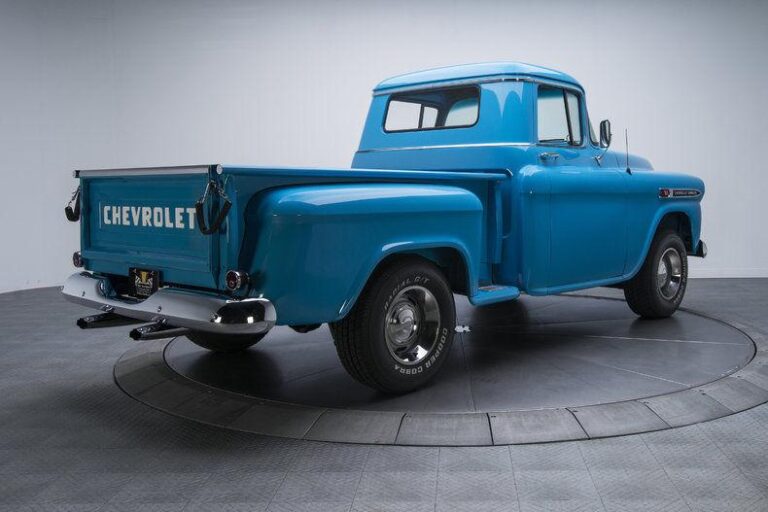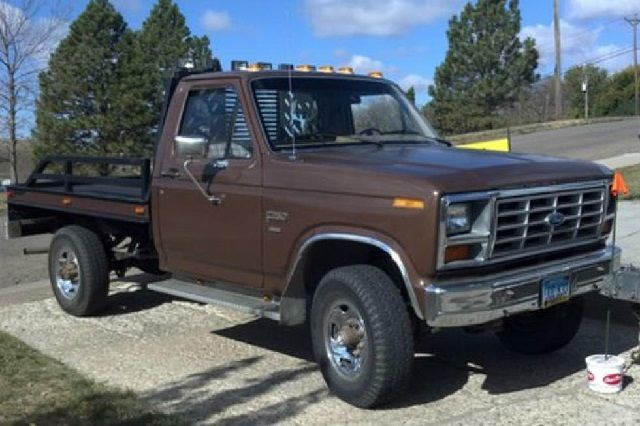Four Wheel Drive Trucks For Sale: Your Ultimate Guide to Unlocking Off-Road Capability and Versatility
Four Wheel Drive Trucks For Sale: Your Ultimate Guide to Unlocking Off-Road Capability and Versatility cars.truckstrend.com
In a world that demands versatility and capability, the four-wheel drive (4WD) truck stands out as a true workhorse, an adventurous companion, and a reliable mode of transport. For sale across dealerships, online platforms, and private listings, these formidable vehicles offer unparalleled traction and power, making them indispensable for everything from navigating treacherous off-road trails and hauling heavy loads to confidently tackling challenging weather conditions. This comprehensive guide will delve deep into the world of 4WD trucks, providing you with the knowledge and insights needed to make an informed purchase, whether you’re a seasoned enthusiast or a first-time buyer.
The Enduring Appeal and Core Benefits of 4WD Trucks
Four Wheel Drive Trucks For Sale: Your Ultimate Guide to Unlocking Off-Road Capability and Versatility
The decision to invest in a 4WD truck is often driven by a specific need for enhanced capability beyond what a standard two-wheel drive (2WD) vehicle can offer. The primary appeal lies in their ability to deliver power to all four wheels, either on demand or continuously, significantly improving traction and control.
Key Benefits Include:
- Unrivalled Off-Road Capability: This is arguably the most celebrated feature. With 4WD engaged, trucks can conquer rough terrain, muddy trails, sandy dunes, and rocky paths that would leave 2WD vehicles stranded. Features like low-range gearing (4L) further multiply torque for extreme crawling.
- Superior All-Weather Performance: Snow, ice, heavy rain, or slick roads become less intimidating with the added grip of 4WD. It provides enhanced stability and reduces the risk of skidding, offering peace of mind in adverse conditions.
- Enhanced Towing and Hauling: While 4WD doesn’t directly increase a truck’s tow rating, the improved traction is invaluable when pulling heavy trailers, especially on inclines or slippery surfaces. It ensures better control and prevents wheel spin.
- Increased Resale Value: Due to their versatility and demand, 4WD trucks often retain a higher resale value compared to their 2WD counterparts, making them a sound investment.
- Utility and Practicality: Beyond off-roading, 4WD trucks serve as reliable partners for work, recreation, and daily driving, adapting to a wide range of tasks and lifestyles.

Decoding 4WD Systems: Understanding the Mechanics
Before you dive into listings for 4WD trucks for sale, it’s crucial to understand the different types of 4WD systems available. Each offers distinct advantages for specific uses.
- Part-Time 4WD: This is the most common system. It’s designed for off-road use only and should not be used on dry pavement. When engaged, it locks the front and rear axles together, providing maximum traction. Driving on pavement can cause "driveline binding" and damage the system. It typically offers 2H (2-wheel drive high), 4H (4-wheel drive high), and 4L (4-wheel drive low).
- Full-Time 4WD: Found in some higher-end trucks and SUVs, this system can be used on all surfaces, including dry pavement. It uses a center differential to allow the front and rear wheels to rotate at different speeds, preventing binding. Many full-time systems also offer a low-range option for off-road use.
- Automatic 4WD (Auto 4WD/AWD): Often seen in more modern trucks, this system operates primarily in 2WD but automatically engages 4WD when slippage is detected. Some systems allow the driver to manually select 4H or 4L. This offers convenience and improved safety without constant manual engagement.
- Low Range (4L): This setting multiplies torque significantly, making it ideal for crawling over rocks, descending steep hills, or pulling heavy loads at very low speeds. It should only be used off-road.
- Locking Differentials: Some advanced 4WD trucks feature locking differentials (front, rear, or both). These force both wheels on an axle to spin at the same speed, providing maximum traction in extreme situations where one wheel might lose contact with the ground.
Types of 4WD Trucks on the Market
The market for 4WD trucks is diverse, offering options to suit various budgets, needs, and preferences.
- Mid-Size 4WD Trucks: These are excellent for those who need off-road capability and utility without the bulk of a full-size truck. They are generally more maneuverable, fuel-efficient, and easier to park.
- Examples: Toyota Tacoma, Chevrolet Colorado, Ford Ranger, Nissan Frontier.
- Full-Size 4WD Trucks: The most popular segment, offering a balance of towing capacity, payload, interior space, and off-road prowess. They are versatile for both work and recreation.
- Examples: Ford F-150, Ram 1500, Chevrolet Silverado 1500, Toyota Tundra.
- Heavy-Duty (HD) 4WD Trucks: Designed for serious towing and hauling, these trucks boast robust frames, powerful engines, and heavy-duty suspensions. Their 4WD systems are built to handle extreme loads and challenging terrain.
- Examples: Ford F-250/F-350, Ram 2500/3500, Chevrolet Silverado 2500/3500 HD.
Navigating the Purchase: Key Considerations When Buying
Finding the right 4WD truck for sale requires careful consideration of several factors to ensure it meets your specific requirements and budget.
- Intended Use: Will you be primarily off-roading, towing, daily commuting, or a mix of everything? Your primary use case will dictate the type, size, and features you need.
- New vs. Used:
- New: Offers the latest technology, warranty, and customization options. Higher initial cost and depreciation.
- Used: More affordable, less depreciation. Requires thorough inspection and research into maintenance history.
- Budget: Beyond the purchase price, factor in insurance, fuel costs (4WD trucks can be thirstier), maintenance, and potential modifications.
- Condition and Inspection: Especially for used trucks, a pre-purchase inspection (PPI) by a trusted mechanic is non-negotiable. Pay close attention to the frame (for rust or damage), suspension components, tires, and the 4WD system itself. Test all 4WD modes.
- Maintenance History: A well-documented service history indicates a responsible owner and can help predict future reliability.
- Test Drive: Drive the truck in various conditions if possible. Test the brakes, steering, acceleration, and most importantly, engage and disengage the 4WD system multiple times to ensure it works smoothly. Listen for unusual noises.
- Features and Options: Consider what features are important to you: bed length, cab style (regular, extended, crew), infotainment, safety features, towing packages, off-road packages (skid plates, upgraded shocks), and locking differentials.
Where to Find Your Next 4WD Truck
The journey to finding your ideal 4WD truck begins with knowing where to look.
- Dealerships (New and Used): Authorized dealerships offer new models with warranties and financing options. Used car dealerships provide a wide selection of pre-owned trucks, often with reconditioning and some level of warranty. They handle paperwork and offer trade-in options.
- Online Marketplaces: Websites like AutoTrader, Cars.com, CarGurus, and Kelley Blue Book (KBB.com) aggregate listings from both dealerships and private sellers. They offer extensive filters to narrow down your search.
- Private Sellers: Websites like Craigslist, Facebook Marketplace, and dedicated automotive forums can be goldmines for good deals. Prices are often lower, but the buyer assumes more risk regarding the vehicle’s condition and history. Always meet in a safe, public place.
- Auctions: Public auto auctions (often through impound lots or repossessions) can offer very low prices, but they are high-risk. Vehicles are sold "as-is," and thorough inspections are difficult.
- Specialty 4×4 Shops/Brokers: Some businesses specialize in sourcing and selling lifted or modified 4×4 trucks. These can be great for custom builds but might come with a premium.
Smart Buying Tips for a Successful Purchase
Once you’ve identified potential candidates, follow these actionable tips to secure the best deal:
- Do Your Research: Compare prices for similar models, years, and mileage using online valuation tools (KBB, Edmunds). Understand common issues for the specific make/model you’re considering.
- Get a Vehicle History Report: For used trucks, a CarFax or AutoCheck report is essential. It provides information on accidents, service history, title issues, and odometer discrepancies.
- Negotiate Wisely: Don’t be afraid to negotiate the price. Be prepared to walk away if the deal isn’t right. Factor in any needed repairs or modifications into your offer.
- Understand Financing and Insurance: Get pre-approved for a loan before shopping, so you know your budget. Obtain insurance quotes early, as 4WD trucks can sometimes have higher premiums due to their value and potential for off-road use.
- Check All Components: Ensure all lights, electronics, windows, and the heating/AC system work correctly. Test the differential locks (if present) and listen for unusual noises during the 4WD engagement.
Estimated Price Ranges for 4WD Trucks For Sale (USD)
Prices for 4WD trucks vary dramatically based on make, model, year, condition, mileage, features, and market demand. The table below provides broad estimates for various categories to give you a general idea. These are illustrative ranges and can fluctuate significantly.
| Category | Common Models (Examples) | Used Price Range (Estimate) | New Price Range (Estimate) | Key Features/Notes |
|---|---|---|---|---|
| Used Mid-Size | Toyota Tacoma, Chevy Colorado, Ford Ranger, Nissan Frontier | $15,000 – $35,000 | N/A | Good for light off-roading, city driving, and moderate hauling. Better fuel economy than full-size. Popular for customization. |
| New Mid-Size | Toyota Tacoma, Chevy Colorado, Ford Ranger, Nissan Frontier | N/A | $30,000 – $50,000+ | Latest tech, warranty. Good balance of capability and maneuverability. |
| Used Full-Size | Ford F-150, Ram 1500, Chevy Silverado 1500, Toyota Tundra | $20,000 – $50,000 | N/A | Most versatile for work and play. Wide range of engine options, cab configurations. Price highly dependent on trim and mileage. |
| New Full-Size | Ford F-150, Ram 1500, Chevy Silverado 1500, Toyota Tundra | N/A | $40,000 – $80,000+ | Best-sellers with advanced features, strong towing/payload. Wide range of trims from basic work trucks to luxury off-roaders. |
| Used Heavy-Duty | Ford F-250/350, Ram 2500/3500, Chevy Silverado 2500/3500 HD | $30,000 – $70,000+ | N/A | Built for maximum towing/hauling. Often diesel engines. Higher maintenance costs. Very durable but less comfortable for daily driving. |
| New Heavy-Duty | Ford F-250/350, Ram 2500/3500, Chevy Silverado 2500/3500 HD | N/A | $55,000 – $100,000+ | Top-tier towing and payload. Ideal for commercial use, large RVs, or heavy equipment. Can be highly optioned. |
| Specialty/Off-Road | Jeep Gladiator, Ford Bronco, Toyota 4Runner (TRD Pro) | $30,000 – $70,000+ | $45,000 – $80,000+ | Designed with specific off-road enhancements (lift kits, specialized tires, locking diffs). Often command higher prices due to demand and features. |
Frequently Asked Questions (FAQ) About 4WD Trucks
Q1: Is 4WD worth the extra cost?
A1: If you frequently encounter challenging terrain, severe weather (snow, mud), or need enhanced traction for towing, the added capability and safety of 4WD are definitely worth the investment. For purely urban driving on paved roads, it might not be necessary.
Q2: What’s the difference between 4WD and AWD (All-Wheel Drive)?
A2: 4WD systems are typically more robust, designed for heavy-duty off-road use, and often allow manual selection of specific modes (like low range). AWD systems are generally lighter, operate automatically, and are designed to improve traction on paved roads in varying weather conditions, not extreme off-roading.
Q3: How often should I engage my 4WD system?
A3: If you have a part-time 4WD system, engage it briefly once a month (e.g., on a dirt road) to lubricate components and keep them functional. Full-time or automatic 4WD systems don’t require this specific exercise.
Q4: Do 4WD trucks use more fuel?
A4: Yes, 4WD trucks generally consume more fuel than their 2WD counterparts due to the added weight and parasitic drag of the 4WD components. Fuel economy can also decrease when 4WD is actively engaged.
Q5: What kind of maintenance does a 4WD system need?
A5: Regular maintenance includes checking and changing the fluids in the transfer case and differentials according to the manufacturer’s schedule. It’s also important to inspect the universal joints (U-joints) and driveshafts for wear or damage.
Q6: Can I lift a 4WD truck?
A6: Yes, lifting 4WD trucks is a popular modification. However, it’s crucial to use reputable kits and have the work done by experienced professionals to avoid issues with suspension geometry, drivetrain angles, and overall safety.
Conclusion
The market for four-wheel drive trucks for sale is vibrant and diverse, offering a compelling blend of utility, adventure, and peace of mind. Whether you’re navigating unpaved trails, enduring harsh winters, or simply seeking the confidence of superior traction, a 4WD truck is a powerful asset. By understanding the different systems, considering your specific needs, conducting thorough research, and performing diligent inspections, you can confidently find and purchase the perfect 4WD truck that will serve you reliably for years to come. Your next adventure, or simply a more secure daily commute, awaits behind the wheel of a capable 4WD truck.





